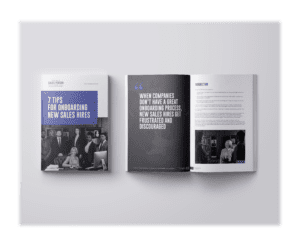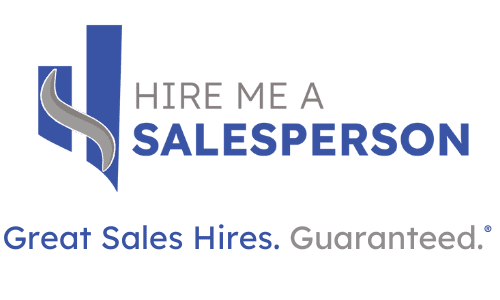You might think, sales is sales, but it’s not. Often, being seduced by a sales candidate is a problem. You believe you’re hiring a sales person, and if they led their team in sales at another company, they can sell for you too. What so many businesses have yet to understand about the sales hire process is, once again, sales is not sales. In fact, there are two types of sales roles, and knowing which one you need will make all the difference.
Over the years, time and again, we would see variations of a similar story: A company needs to hire a sales person. The sales hire process goes like this. They place a non-descript ad: Sales Person Wanted. Resumes come in from people selling all kinds of widgets to all kinds of customers at different stages of the buying journey. The person who impresses the interview team and has a good track record, maybe even references, is hired. But a few weeks in, they have not met or even come close to meeting targets. The phones go quiet. The customers go quiet. And you are sweating. While you are sweating, you decree, But they were good at sales before!?
What happened?
What happened is you probably did hire a good sales person for a different kind of sales role. In our decades of sales experience, what we’ve identified is that there are actually two types of sales roles and two types of sales people. Get it wrong, and it’s like asking a cat to bark. Get it right, and watch your new hire knock your targets off the page.
The two types of macro-level sales roles:
1. Farmers: Great at keeping current business
A beer rep would be a great example of the farmer sales person. The liquor stores, pubs and restaurants in your city have been customers for years, maybe decades. They place nearly identical orders every quarter and all the farmer sales rep needs to do is make sure the beer shows up so it’s in the tap in time for Friday happy hour.
They will know when to call the manager and they will know the manager’s children’s names and the Friday lunch bartender’s name and they will even visit said pub for a pint with friends after golf from time to time. There is no question that the pub will order the beer.
This is a sales role that focuses largely on fulfilling and keeping an existing customer happy. It’s about relationships and showing up. For many companies that sell repeatedly to the same accounts, it’s an important role. It’s demand fulfillment.
Sales quota: 20% new business, 80% servicing existing accounts
2. Hunters: Best suited to developing new business
The hunter works for the new hipster microbrewery, and their sole responsibility is to go out to all the pubs, restaurants and bars in a new region, and convince them to put the hipster beer on tap.
They thrive on cold calling and cold visits, they are never deterred, and once they have a tap, they need to head back out and find another new tap. They would be too bored hanging around and maintaining accounts: They needs to create the demand, close the deal and move on. They are a hunter! It’s demand creation.
Sales quota: 75 % new business, 25% servicing existing accounts
There are actually subcategories of both of these two main types of sales people, but hopefully you can see why folks with certain sales competencies will thrive in one kind of sales role, and not the other.
What does this mean for you and your sales hire process?
Step 1: Identify which type of sales person you need
Long before the job ad is written, you need to know: Do you need a hunter or a farmer? Take a close look at how much of the role will involve pursuing new accounts and how much involves maintaining existing accounts.
Step 2: Let us use our screening assessments to help make a match
There’s a science to this. We’ve developed in-depth and accurate screening assessments to determine which sales roles someone will be suited to, based on their relationship skills, problem-solving skills, focus and goal orientation. Coming to the selection process of hiring a sales person knowing a candidate’s strengths and your needs is the only way to be sure they’re going to succeed. It’s about predicting success.
Not only will we help you define the role and screen candidates, but we also guarantee your new sales hire. We will also support on the onboarding and coaching of the new hire. We believe in hiring slow: If you use our process, you won’t have to worry about firing fast.
With the cost of a bad hire being so significant, it pays to take your time, apply strategy and get it right in the sales hire process.
Learn more about our process and how we help you recruit a winning sales team or read more in our article To hire a great sales person, do this.
Ready to hire only sales people who are going to be an incredible fit for the role and your company? Reach out so we can learn more about your opportunity and how we can help you hire a star. 1-888-966-2284
FREE REPORT: 7 TIPS FOR ONBOARDING NEW SALES HIRES

WHEN COMPANIES DON?T HAVE A GREAT ONBOARDING PROCESS, NEW SALES HIRES GET FRUSTRATED AND DISCOURAGED.
